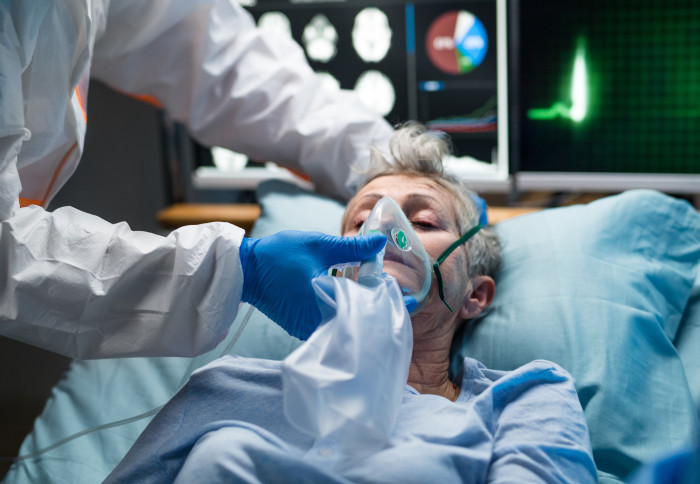Winter viruses and COVID-19 could push NHS to breaking point, warns new report

COVID-19, influenza, and the respiratory virus Respiratory Syncytial Virus (RSV), could push the NHS to breaking point this winter, a new report says.
The report from the Academy of Medical Sciences, draws on expertise from Imperial academics including Professors Azra Ghani, Wendy Barclay and Peter Openshaw, among leading researchers from other institutions and members of the public.
The report, COVID-19: Preparing for the future, looking ahead to winter 2021/22 and beyond, aims to forecast the greatest risks to health this winter and was commissioned by the Government Chief Scientific Adviser, Sir Patrick Vallance.
Risks include:
- A potential surge in respiratory viruses could cause widespread ill health and put pressure on the NHS. New modelling carried out for the report suggests this winter influenza and RSV hospital admissions and deaths could be two times that of a ‘normal’ year and could coincide with an increase of COVID-19 infections, and their associated long-term consequences.
- Dealing with the current third wave of COVID-19, as well as multiple
subsequent outbreaks, between summer 2021 and spring 2022, meaning the NHS cannot catch up with the backlog of routine care. - The NHS is already under pressure, and so is likely to be less able to cope with extra winter health challenges. Before the pandemic, winter bed occupancy in the NHS regularly exceeded 95%. This year the NHS will also be operating with a reduced number of beds because of infection control measures. The report also highlights that the NHS is reporting a shortage of nearly 84,000 staff, and a shortage of 2,500 GPs. Staff fatigue and burnout will also be a challenge.
- Worse physical and mental health in the UK population – including that due to delayed diagnosis and treatment and other impacts of the pandemic – could lead to even higher rates of conditions such as asthma, COPD, heart attack and
stroke this winter.
A winter surge of flu
A surge of respiratory viruses, including flu and RSV, could be more likely because the UK population had limited exposure to these viruses last winter. Flu, RSV and other respiratory viruses that are likely to circulate at higher levels this winter share the same symptoms as COVID-19, so it is important to have tests to distinguish between them to provide best treatment.
Between 15,000 and 60,000 people could die from influenza this winter according to new modelling for the report, though the planned widespread flu vaccination should help to reduce this risk.
The report is calling for measures to make sure that everyone who is
eligible for a flu vaccination gets vaccinated, and for wider use of testing and antivirals to treat influenza for the most vulnerable, and those who become particularly ill.
The pandemic has had a disproportionately negative impact on people from poorer or disadvantaged backgrounds, minority ethnic groups and deprived regions.
The report urges that all efforts to address the pandemic and the UK’s recovery must look to stop and reverse the unequal impacts of COVID-19 on health and wellbeing.
Summer peak of COVID-19
Professor Azra Ghani said: “It is very difficult to predict the course of the pandemic this winter. We do not know how people will react to relaxing restrictions and the impact this will have on transmission, how long the COVID-19 vaccines will provide immunity for, or what new disease variants may emerge.
“Our modelling suggests a summer peak of COVID-19 infections with subsequent local outbreaks over winter – though we can’t completely rule out another winter wave. Whilst we expect the peak in deaths to be considerably lower than last winter, under some scenarios we could see hospital admission rise to similar levels.
"Furthermore, with a high level of virus circulating in the community there is a risk that the number of people living with long COVID could double. Our modelling of a reasonable worst-case scenario also shows we could be dealing with around twice the levels of influenza and RSV this autumn and winter, causing widespread ill health and even greater pressures on the NHS.”
Article supporters
Article text (excluding photos or graphics) © Imperial College London.
Photos and graphics subject to third party copyright used with permission or © Imperial College London.
Reporter
Stephen Johns
Communications Division